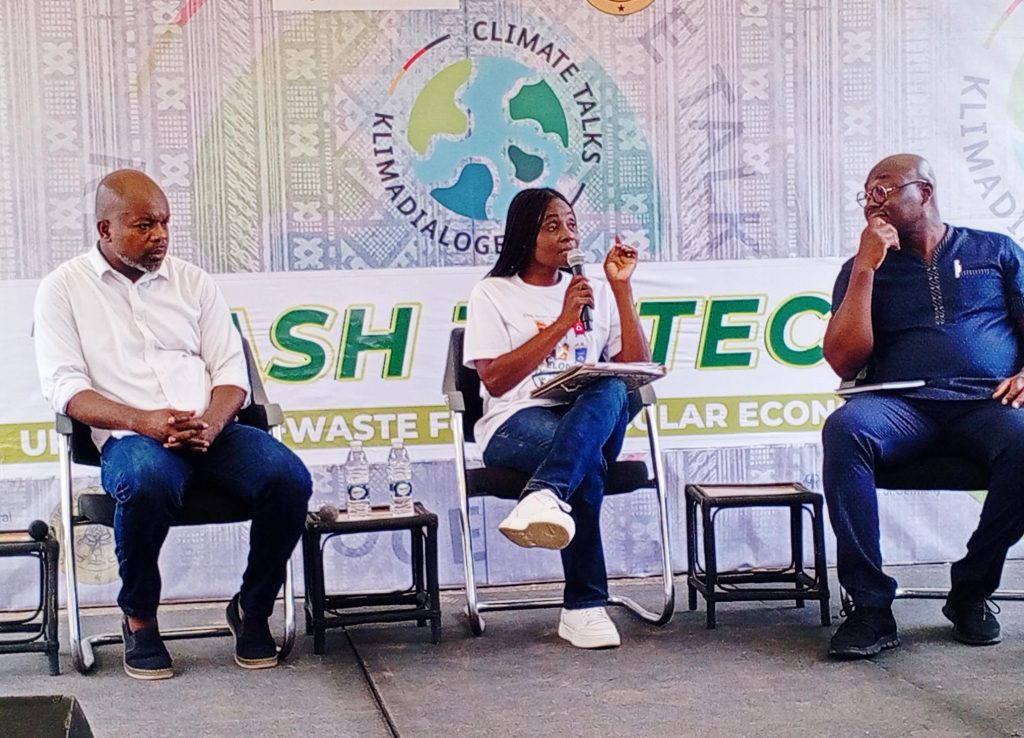By Patrick Ofoe Nudzi
Accra, Dec. 10, GNA – Recyclers and refurbishers within the e-waste management value chain have called for consented efforts to ensure waste traceability in order to protect the health and safety of citizens and the environment.
They said though the Hazardous and Electronic Waste Control and Management Act, 2016, (Act 917) regulated the sector, the collection, packaging, dismantling, distribution and disposal of e-waste materials were largely informal, defeating its traceability purpose.
Madam Vivian Ahiayibor, Managing Director, City Waste Recycling Ltd, said there had been a lot of waste trafficking around the globe and mostly backlogs were brought to Ghana with lot of complications that the State could not handle.
She said this at the grand finale of Climate Talks at Electro Recycling Ghana Limited in Accra, where the forum focused on the theme: ”Trash to Tech: Upcycling E-waste for a Circular Economy.”
The event which brought together industry experts, policymakers, and stakeholders to discuss innovative approaches to managing electronic waste and fostering sustainable economic growth in Ghana was organised by the German Embassy in Accra in collaboration with the Ghana Broadcasting Corporation
Madam Ahiayibor said transparency in recycling would help to know exactly where the material was coming from, the material composition and what it could be used for in the country.
“Transparency and e-waste traceability help companies to actually abide by the environment, social and governance (ESG) guidelines which is a set of criteria for industries to be compliant in terms of climate change and sustainability. So traceability is very key,” the Managing Director said.
Mr Ebenezer Appah Sampong, Chief Executive Officer, Eco Solutions Industries, said, Ghana needed the necessary infrastructure to effectively collect e-waste and improve traceability.
He said with about 11 different categories of e-waste products seen in the country, an infrastructure regime would have in place pick up points to receive the e-waste collection and other facilities to transform the informal nature of the sector.

Mr Nana Yaw Konadu, Founder, Electro Recycling Ghana, said the sector would be ‘green’ and sustainable if structures were available and working well.
Mr Daniel Krull, German Ambassador to Ghana, in an address, said the next administration would have to tackle the challenges of climate change head-on, adding that the Embassy would continue to offer assistance in making sure that the needs and the views of the people were transmitted to those who have to shape policies for the future of this country.
“It Is not a secret that Ghana has in many ways very modern, very straightforward laws. But sometimes the implementation is not by 100 per cent. I think this is where improvement is mostly needed,” he said.
The Ambassador said driving through Accra and seeing the state of some cars and the exhaust fumes produced in traffic had been tremendously terrible, urging that the new administration could go a little bit stricter on that.
GNA